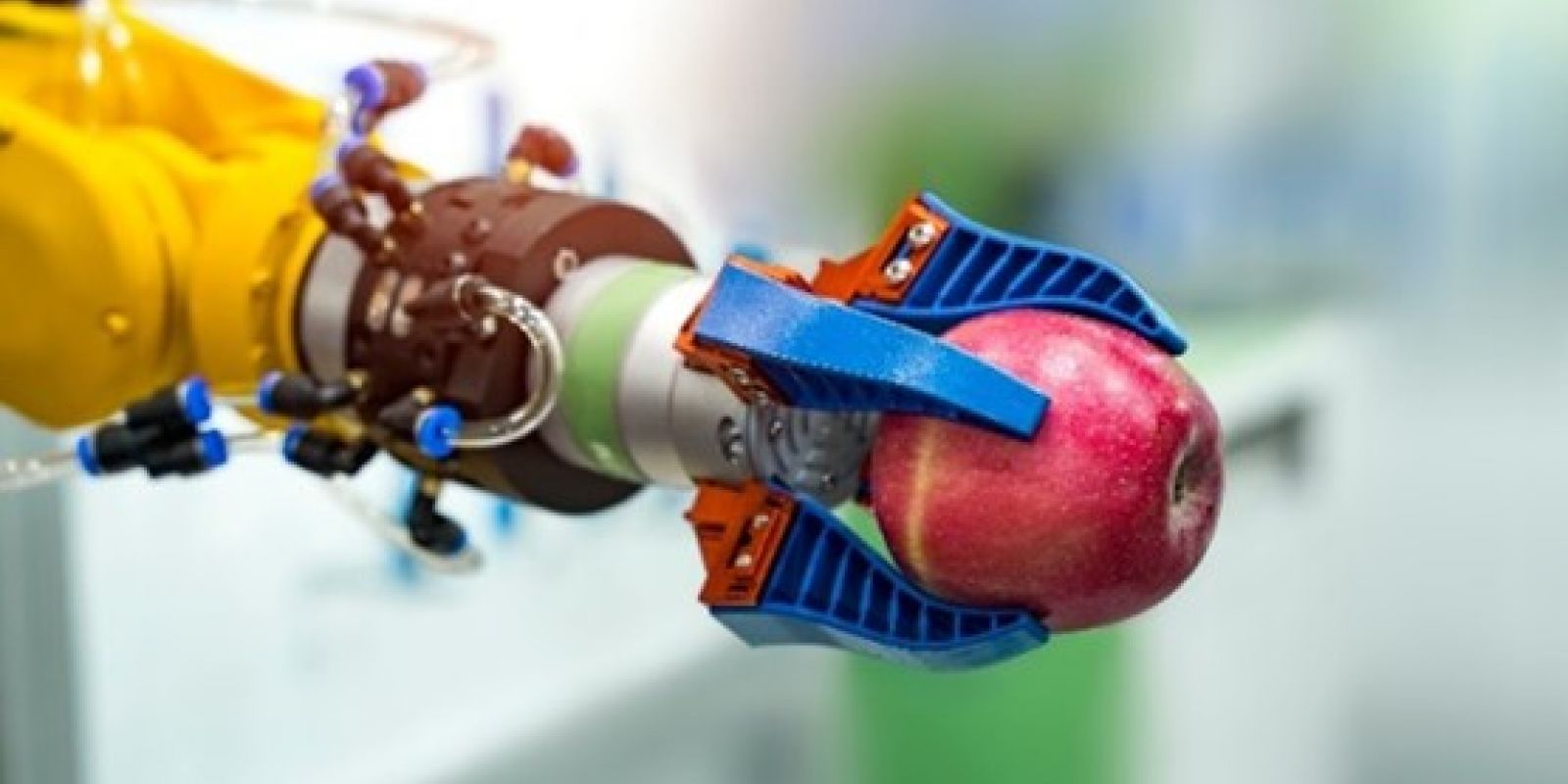University Projects Part of Innovate UK Food Challenge
Projects involving the University of Lincoln and Lincoln Institute for Agri-Food Technology (LIAT) have been included in an impact showcase as part of Innovate UK’s Transforming Food Production (TPFT) Challenge.
The University has been involved in five of the key projects which form part of the TPFT Challenge, which will help to transition the food production industry towards its target of Net Zero Carbon by 2040.
The University contributed to a feasibility study with Berry Gardens Ltd and Lutton Farm Partnership to develop an automated and efficient blueberry harvester which will pick the fruit without doing damage to the berry itself, thus cutting down on wastage. Blueberries are the second highest value soft fruit in the UK, so an efficient harvester could make a valuable contribution to carbon reduction.
Another milestone project also involved Berry Gardens working alongside the University of Lincoln, this time with Saga Robotics. The project saw the partnership develop a fleet of fruit-picking robots that can carry out a wide range of tasks in the field. The autonomous machines use advanced vision systems and advanced picking technologies and are self-charging, to make fruit picking as efficient as possible.
On the Robot Highways project, the University again worked with Saga Robotics on the largest demonstration of robotic and autonomous technologies that bring together multiple application technologies across a single farming system.
The University worked in partnership with ARWAC Ltd in Peterborough to develop an environmentally friendly method of weed control in arable farming. Blackgrass is a particular problem in arable farming, with the weed developing a resistance to chemical spray treatments, meaning that an alternative must be found.
Finally, a vision-guided weeding system has been developed with research from the University of Lincoln, alongside SAGA Robotics and Garford Farm Machinery Ltd. The current system of herbicide spraying is not sustainable, and the need is greater than ever for a precision treatment of weeds amongst crop plants. The University helped to develop a new autonomous system, which can operate 24 hours a day in either fields, glasshouses or polytunnels.
Simon Pearson, Director of Lincoln Institute for Agri-Food Technology (LIAT) said: “The University of Lincoln and LIAT are playing such a pivotal role in creating a Net Zero future for the agri-food sector, and to be involved with five of the projects in the TFPT Challenge certainly highlights our commitment to this.
“We’ve worked with some incredible partners on some ground-breaking projects such as robotic fruit picking, automated weed control and have even taken part in the largest showcase of agri-food robotics in the world.
“We see this as very much the start of a long and productive series of partnerships, where our research and development will make many positive improvements to the way the agri-food industry operates, allowing it to work towards Net-Zero carbon by 2040.”
Every one of the five-year TFP Challenge projects is listed in a new brochure released earlier this month. A total of 92 projects have benefited from Transforming Food Production funding since its inception in 2019.
The projects aim to produce food in more efficient ways that will put the sector on a trajectory to realise net zero emissions by 2040.



